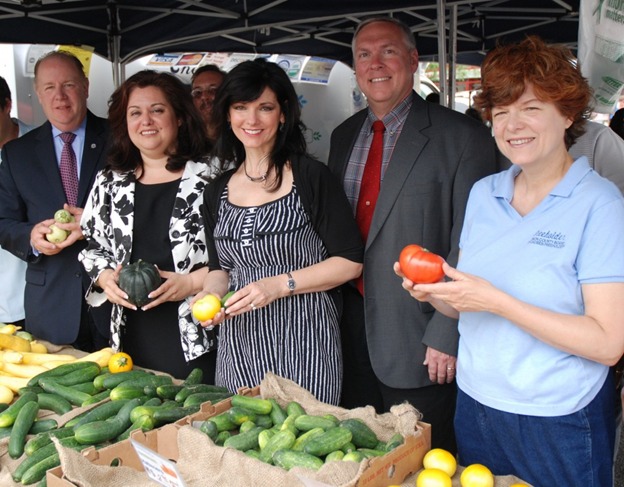
Share On Social!

How can we all be a part of making 2015 great? According to New Jersey Assemblywoman Annette Quijano (D-20th) we can start by supporting efforts to improve child health and equipping underserved communities with the tools they need to live a happy and healthy lifestyle.
In a recent op-ed piece, Quijano shared what many researchers and health care practitioners are already aware of—that many Latino and African Americans do not have easy access to healthy food. She discusses how more often than not communities that lack easy access to healthy food, called food deserts, struggle with an endless cycle of obesity. Along with the lack of fresh fruits and vegetables, many low-income Latino communities must deal with additional barriers such as a lack of safe transportation to grocery stores and having fewer places for recreational activities in their neighborhoods.
As a solution, Quijano proposes that locals in New Jersey return to the basics by creating more community gardens. She cites a study which found that a group individuals living in Flint, Michigan who participated in community gardening were more 3.5 times more likely to eat five servings of fruits and vegetables.
“In contrast to food deserts, community gardens not only offer more food alternatives but also encourage a more active lifestyle and opportunities for community involvement,” Quijano said in the nj.com op-ed. “Some people believe that low-income minority communities are incapable of planting or harvesting food that will feed their families, but this belief is untrue and a harmful stereotype.”
Quijano also discussed ensuring that we not provide just any type of food to low-income families, but that we ensure access high-quality, nutritious foods.
Read the full article here.
Interested in bringing healthy changes to your neighborhood? Get started by watching our Better Foods in the Neighborhood Salud Hero stories to learn how others did it.
Join our network of researchers, students, parents, and community members who are committed to reversing Latino childhood obesity by registering with the Growing Healthy Change platform by clicking here.
Explore More:
Healthy Families & SchoolsBy The Numbers
142
Percent
Expected rise in Latino cancer cases in coming years



